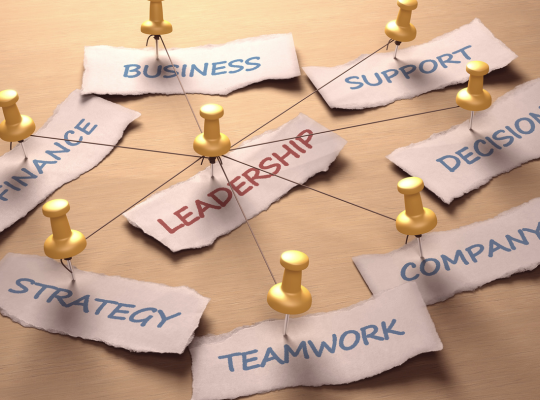EI has become an important factor that determines effective leadership. It is a type of intelligence that exceeds mere traditional intellect in its dealings with the ability to understand and manage our own emotions and those of others. It is imminent that the leaders with high EI have been so endowed with very excellent decision-making, communication, and team management skills.
This article will deal with the question; of what EI is, in its part in leadership, and, in addition to it, some procedures to adopt and apply the components of Emotional Intelligence within a leadership setting.
What is Emotional Intelligence or EI?
EI refers to the level of comprehension and management of one’s emotions and others’ feelings. Basically, there are five elements to it, including:
- Self-awareness: It is all about being conscious of your feelings and knowing how they interact with your thoughts and actions.
- Self-regulation: This deals with the control of the feelings and also adaptation to situations.
- Motivation: This is about the driving forces that exist on people to do something because it is of value.
- Empathy: This is about understanding other people’s feelings and responding to them properly.
- Social skills: Relationship management to move people in desired directions.
Role of Emotional Intelligence in Leadership
EI and leadership effectiveness are inextricably interwoven. Higher-leadership individuals with increases in emotional intelligence exercise better decision-making, effective communication, and efficient team management. Leaders with high EI are able to exhibit several following qualities:
- Better Decision-Making: A leader who can understand self- and other-feelings is better placed to make more informed and balanced decisions.
- Communicate effectively: Leaders with high EI are able to communicate their ideas more clearly and listen to people for a better understanding of ideas.
- Manage teams efficiently: Understand the dynamics of the team and gauge the feelings of every individual, thus bonding the team into one entity.
Developing Self-Awareness
Self-awareness is that part of Emotional Intelligence from which everything else springs. It is being conscious of one’s feelings and how it interferes with one’s thoughts and actions. Here are some steps for developing self-awareness:
- Practice Self-Reflection: Take some time out daily to reflect on your feelings and actions. Challenge yourself, and then ask yourself why you felt that way and how it drove your behavior.
- Keep a Journal. It helps one better understand what one has gone through or is going through. Note what triggers certain emotions and how you respond.
- Feedback Seeking: Get honest feedback from some trusted colleagues or friends regarding how they perceive your feelings and behavior.
By being more self-aware, the understanding of strengths and weaknesses would be much clearer, and that forms an important part of personal growth and effective leadership.
Self-Regulation Enhancement
Self-regulation is a process of managing emotions and keeping yourself in command, especially at times when you go through lots of stress. Following are a few strategies to enhance self-regulation:
- Practice Mindfulness: Mindfulness procedures such as deep breathing and meditation will keep one cool-headed and focused on the task.
- Develop Emotional Equilibrium: That is, become aware of your emotions and take remedial action before they get out of hand, such as taking short breaks to step back from the situation and gain perspective.
- Stay Flexible: Flexibility is the key to self-regulation. Be open to change and willing to alter your plans according to the situation.
As leaders work on their self-regulation, they will be better equipped to keep their cool, make sound decisions when stressed, and create stable ground for those around them.
Cultivating Motivation
While studying emotional intelligence, motivation is about being driven by inner values and goals rather than by external rewards. Here is how to cultivate motivation:
- Set personal and professional targets: Well-defined and realistic goals provide you with direction and the urge to move forward. Break down the big ones into small steps so that one keeps the drive.
- Maintain a Positive Attitude: It is very important to think positively about outcomes, learn from failures, and never dwell on them. A positive attitude greatly affects your resilience and drive.
- Find Your Passion: Always do what you love doing. Where there is passion, there is the motivation to stick through to your goals.
High-motivation leaders inspire teams, raise progress, and deliver extraordinary results.
Empathize
It is a state in which a person can understand and share feelings of another. It forms the basis of trust and strong relationships. Here’s how you can build empathy:
- Active Listening: Listen carefully to others without interrupting. Please demonstrate that you value their viewpoint.
- Observe Non-Verbal Behavior Body language, tone of voice and facial expressions tell a lot about others’ emotions.
- Put yourself in their shoes. See things from the standpoint of others. This will help you respond more compassionately.
Through empathy, leaders can connect with teams at a deeper level and put everyone in a comfortable and supportive environment that gives a greater push toward working collaboratively.
Exploring Emotional Intelligence in Leadership in Practical Applications
Emotional intelligence can be used in many situations encountered by leadership. Some of the practical applications are mentioned below :
- Team Building: Interpersonal skills and empathy help form a homogenous team. Observe each member’s strengths and weaknesses and allocate roles accordingly.
- Conflict Resolution: Self-regulation and empathy are useful in managing and resolving conflicts. Approach conflicts with a composed mind and try to find solutions that match everybody’s needs.
- Decision Making: Exercise self-awareness to note your emotional biases. Also, consider the feelings of others who will be impacted by your decisions for a balanced emotional approach.
- Change Management: Steer your team through change, using motivation and social skills to explain benefits clearly and see your team through. Leaders who can combine emotional intelligence into their daily practices are better at navigating obstacles with more grace and smoothness and creating a better working climate.
Conclusion
Emotional intelligence is a very important attribute that a leader should possess. It consists of self-awareness, self-regulation, motivation, and social skills with empathy. Having developed and applied constituents of emotional intelligence, a leader would have a better standing in making decisions, communicating, and managing staff. The ingredient of emotional intelligence not only gives priority to leadership skills but also to personal and professional development. The development of emotional intelligence remains the hallmark of leading with impact and integrity in modern demand management, which is continuously evolving.







